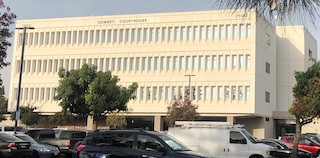In 1998, our client entered a no contest plea to a misdemeanor violation of Penal Code § 273.5(a) in the Downey Superior Court.
At the time, he was 33 years old and had been in the United States for 21 years, having emigrated to the United States from Mexico at age 13 on an F-1 student visa. That visa had expired years earlier, but our client remained in the United States. He had married and had two children and worked in a variety of jobs over time.
He was aware that he could be deported for certain crimes, but was told by friends and co-workers in casual discussions that a single misdemeanor conviction was not a problem.
So, when his wife accused him of hitting her and he was arrested by the Bell Police Department, he was most worried about jail time and missing work, rather than being deported back to Mexico. After the police arrested him, he spent three days in jail before seeing a judge.
In the Downey Superior Court, while still in custody, our was assigned a public defender who was quite busy and seemed irritated if our client asked questions about the case. The public defender negotiated a plea bargain with the District Attorney wherein our client would spend no more time in jail and return home the same day. He would be placed on 36 months of informal probation during which time he would have to take a fifty-two session batterers class, perform 10 days of community service, pay fines to the court and stay out of any trouble. He agreed to this deal.
The judge then read him a script of warnings and told him about his constitutional rights. To our client it seemed like the judge was just reading certain things because he was obligated to do so when any person entered into a plea bargain. To our client, it seemed like this was not applicable to him in particular, but was just read in every case.
At the time our client entered into the plea bargain, his mindset was that the conviction would not lead to him being deported, denied re-entry, denied naturalization or denied citizenship although the judge read these things to him. The client instead trusted what his friends and co-workers had told him really matters in terms of immigration consequences.
So, our client agreed to the plea bargain not knowing how such a plea was actually far more damaging to his future than he believed.
Our client then fulfilled the obligations of probation and ended his probation after three years. No one from immigration or ICE ever sent him a letter asking him to contact them about the conviction.
In 2004, his wife made the same accusations about domestic violence and our client again was arrested and again entered into a plea bargain to misdemeanor domestic violence on the same terms. When he did so a second time, he was comfortable doing so and believed there were no immigration consequences to the plea because he had done so six years earlier and nothing happened in terms of deportation proceedings.
And the client seemed to be correct in this understanding until 2021 when he applied to become a U.S. citizen and his immigration attorney told him each domestic violence conviction was a problem to his becoming a citizen. The attorney told him he needed to speak to a criminal defense attorney about having each conviction vacated.
The client then called Greg Hill & Associates and described the facts as stated above. Greg explained how judges generally handled motions to vacate, which were allowed under Penal Code § 1473.7(a)(1) for a prejudicial error in the conviction due to defendant’s lack of knowledge about the immigration consequences, making such a conviction legally defective and eligible for being vacated.
 Downey Courthouse
Downey Courthouse
Our office then prepared such a motion to vacate for the client’s first conviction from 1998 in the Downey Superior Court. Our motion explained the factual circumstances of our client’s mistaken understanding of the immigration consequences when he entered the plea and was convicted in 1998, which was that there were no consequences.
Our office then filed the motion in the Downey Superior Court and served not only the District Attorney’s Office there, but also the prior public defender.
At the hearing on the motion in Downey Superior Court, the judge granted the motion and the District Attorney did not oppose the request to vacate the conviction. The DA then dismissed the case, stating on the record that their office was unable to proceed with the case.
Our client was extremely happy with this result.
For more information about 1473.7(a)(1) motions to vacate, please click on the following articles:
 Downey Courthouse
Downey Courthouse